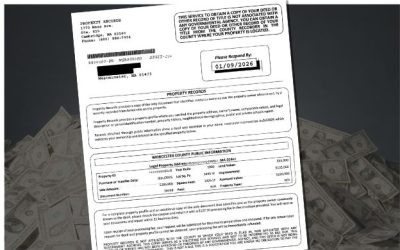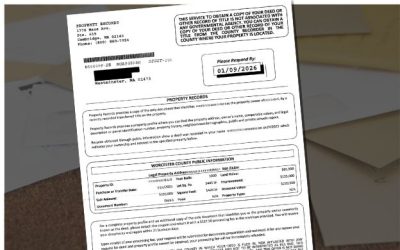
Jun 19, 2025 | Around The Home, Around The Hoome, Artificial intelligence, Buying Real Estate, Chapter 7 Bankruptcy, Consumer Tips, Credit Scoring, Fair Housing, Federal Reserve, FHFA, Financial Crisis, Financial Fraud, Financial Reports, Foreclosure, Happy Thanksgiving, Holidays, Home Building Tips, Home Buyer Tips, Home Buying Tips, Home Care, Home Care Tips, Home Closings, Home Decorating, Home Financing Tips, Home Maintenance, Home Mortgage, Home Mortgage Tips, Home Seller Tips, Home Selling Tips, Home Tips, Home Values, Homebuyer Tips, Homeowner Tips, Housing Analysis, Housing Market, Interesting Stuff, Investment Properties, Legislation, Market Outlook, Mortagage Tips, Mortgage, Mortgage Guidelines, Mortgage Lenders, Mortgage Rates, Mortgage Tips, mortgage-rates-whats-ahead-september-17-2012, News, Organization Tips, Personal Finance, Probate Law, Rankings, Real Estate, Real Estate Agent Information, Real Estate Definitions, Real Estate Tips, Real Estate Trends, Realtors, Selling Real Estate, Selling Your Home, Short Sales, Statistics, Success, Taxes, The Economy, Title Insurance
Whether you’re buying with cash, investing from abroad, transferring property to a family member, or just trying to close without a headache, you’ll want to know what can trigger federal scrutiny — and how to stay off the radar.
From flagged wire transfers and shell companies to gift-of-equity sales and land near military zones, this isn’t your average title-and-keys situation.
It’s real estate with a side of national security, tax enforcement, and financial crime prevention.
Is Big Brother Watching Your Home Sale?
What Buyers and Sellers Should Know About Federal Oversight
You’re Not Paranoid — They Might Actually Be Watching
What you didn’t know on how federal agencies keep tabs on select real estate transactions.
Your Closing Packet Could Be a Federal File
How Your Paper Trail Might Raise Red Flags — And What You Can Do About It
What the FBI, IRS, and Homeland Security
Could See in Your Closing Docs
We’re unpacking what agencies might spot inside your deal’s fine print.
Caught in the Crosshairs? What Triggers Federal Interest in Your Home Sale
The Top Red Flags That Could Invite a Closer Look from Washington
Cash, LLCs, or Land Near a Base? You Might Just Be a Target
The warning signs that put your deal on the government’s radar — and how to stay clear.
Follow the Money: How the IRS Tracks Financial Crimes Through Real Estate
From Unreported Income to Shell Game Schemes
— What IRS-CI Is Looking For
Your Closing Could Be an Audit Trigger — Here’s How the IRS Sees It
Explore the patterns, documents, and loopholes that turn ordinary deals into criminal cases.
Providing title, escrow, closing and settlement services to clients throughout Massachusetts and New Hampshire
“As a realtor, the Rocheford team went above and beyond to make sure my client was not only protected from a legal standpoint but also operated in a timely manner to execute the sale of my client’s dream home.
Thank you for the great experience for myself and my client! Looking forward to our next deal together!”
Realtor®
“I don’t usually use attorneys that often. But if an attorney is needed, I couldn’t recommend this law office enough. I always pride myself on responding quickly to emails and calls, but I was in awe of how fast paralegal Robert Heckman would respond to us. We sold our house a couple months ago and then did a two-part land swap with neighbors and my folks, and both transactions were seamless, including coming in to sign paperwork.
In short, if you need a law office that is responsive and attentive to detail, definitely consider them!”
Leominster, MA
“Excellent, conscientious and professional.
The communication throughout our Real Estate transaction was better than expected. We thought the fee to be very reasonable considering the work accomplished on our behalf. The law office handled the entire closing without us having to be in attendance….as we requested. I have had experience with very competent lawyers and law firms as the result of my previous profession. I would place this law office right up there among the best in their real estate field of expertise and surprisingly at very reasonable and affordable rates/fees.”
Buzzards Bay, MA

Jun 19, 2025 | Federal Reserve, Financial Fraud, Home Buyer Tips, Home Mortgage, Homebuyer Tips, Mortgage, Realtors, Selling Real Estate, Selling Your Home, Taxes, The Economy
Your Closing Could Be an Audit Trigger — Here’s How the IRS Sees It
When most people think of the IRS, they imagine audits and paperwork — not criminal agents working alongside the FBI and Homeland Security. But the IRS-Criminal Investigation Division (IRS-CI) is a powerful enforcement arm of the federal government, and real estate is one of its favorite trails to follow.
From luxury home purchases with unexplained funds to “gifted” equity that isn’t reported properly, the IRS-CI routinely uncovers criminal tax activity by analyzing real estate transactions. If you think your closing statement is just a formality — think again.
Real Estate as a Laundering Tool: Clean Property, Dirty Money
One of the most common IRS-CI cases involves individuals or entities using real estate to hide the source of illicit income.
Common Red Flags:
- Homes purchased with cash not supported by reported income
- Funds layered through multiple entities or relatives
- Repetitive buying and selling at inflated or deflated prices
Learn how IRS-CI tracks financial crimes through real estate
“Gift of Equity” Deals with Missing Paper Trails
It’s common in family-to-family sales to offer a discount — a “gift of equity.” But when these transfers aren’t properly documented, they can flag problems on both income tax and gift tax returns.
Triggers Scrutiny When:
- No gift letter is included in the mortgage or closing file
- Gift exceeds the annual IRS gift exemption and is not reported via Form 709
- Property is sold well below market value without explanation
IRS explanation of gift tax rules: When does a gift of equity trigger tax obligations?
Structuring or Smurfing Through Real Estate
IRS-CI also tracks “structuring,” also known as smurfing — where large sums of cash are broken into smaller amounts to avoid bank reporting thresholds.
How it Appears in Real Estate:
- Multiple down payments from different accounts or people
- Several transfers under $10,000 leading up to a purchase
- Sudden influx of funds from unrelated sources close to closing
These patterns are especially suspicious in all-cash or entity-based purchases.
Shell Companies and Fake Deductions
If the property is being purchased or sold through an LLC or trust, the IRS wants to know who actually controls the asset — especially when tax deductions or depreciation are claimed.
Triggers Scrutiny When:
- Owner hides behind multiple corporate layers
- Rental property expenses are exaggerated or fabricated
- Pass-through income isn’t declared properly
FinCEN’s Corporate Transparency Act ties directly into this enforcement
Review new rules on beneficial ownership disclosure
What This Means for Buyers, Sellers, and Agents
Whether you’re transferring a condo to your niece or selling a vacation home at a discount, the IRS-CI may see more than you expect. And in complex deals — especially those involving cash, gifts, or multiple parties — you could easily trigger review without realizing it.
IRS-CI agents don’t conduct routine audits — they build criminal cases. Your best protection is documentation, legal accuracy, and transparency.
Don’t Let a Paper Mistake Become a Tax Investigation
At The Law Office of David R. Rocheford, Jr., P.C., we guide every transaction with tax compliance in mind. Whether you’re transferring property to family, buying with equity, or structuring a trust sale — we help you stay within IRS guidelines and out of trouble.
Providing title, escrow, closing and settlement services to clients throughout Massachusetts and New Hampshire
“I would highly recommend David as a closing attorney. I have known David and have been using his office for many years. David’s professionalism when dealing with me, my closing department and most especially my clients has been always exemplary.”
SENIOR LOAN OFFICER, SHAMROCK FINANCIAL SERVICES
“The Law Office of Attorney David R. Rocheford, Jr. is by far the most exceptional real estate law office that I have had the pleasure of working with. The professionalism is by far second to none.”
SENIOR LOAN OFFICER, SALEM FIVE MORTGAGE SERVICES
“Attorney David Rocheford has provided settlement and title services for me and Greenpark Mortgage several years. He has assisted all of my clients, including my family and friends with mortgage closings. Always providing excellent service. Reliable and trustworthy!”

Jun 19, 2025 | Buying Real Estate, Consumer Tips, Federal Reserve, Financial Fraud, Financial Reports, Home Buyer Tips, News, Selling Real Estate, Selling Your Home
Your Closing Packet Could Be a Federal File — Here’s Why
When you’re finalizing a real estate transaction, your focus is likely on the price, terms, and closing date — not on what a federal agency might find in your paperwork. But if certain conditions apply, your stack of signed documents could become part of a federal investigation.
From title fraud to suspicious wire transfers, real estate closings contain exactly the kind of data federal agencies use to detect fraud, money laundering, or foreign interference. Let’s break down the key documents that could raise red flags — and how to keep your transaction clean.
Settlement Statements (CD/HUD-1): Show Me the Money
These documents detail the financial anatomy of your transaction — where the money is coming from and where it’s going.
Agencies like the IRS Criminal Investigation Division (IRS-CI) and Homeland Security Investigations (HSI) use these to detect:
- Undisclosed cash sources
- Overstated or fake expenses
- Unusual wire transfers or third-party contributions
IRS-CI investigates tax evasion and unreported income often spotted through property records.
Learn how IRS-CI tracks financial crimes through real estate
Power of Attorney or Signature Authority: Who’s Really Involved?
Documents granting someone else signing authority — especially in cash or trust purchases — can prompt FBI interest if:
- The grantor isn’t properly identified or verified
- A straw buyer is suspected (someone buying on behalf of an undisclosed party)
- The purchase is connected to shell companies with no clear owner
These red flags are commonly tied to fraud and money laundering investigations.
Read the FBI’s guidelines on common real estate fraud patterns
Proof of Funds or Bank Letters: Show Your Work
Cash buyers are often asked to show proof of funds, but not all banks or letters are equal in the eyes of compliance officers.
Federal agencies may scrutinize:
- Large transfers from offshore accounts
- Lack of financial institution transparency
- Inconsistencies between stated income and assets
Homeland Security Investigations (HSI) targets international financial crimes — especially involving real estate.
See how HSI investigates financial crimes tied to real estate
Entity-Based Transactions: LLCs, Trusts, and Shell Games
When a home is purchased through a legal entity — especially in cash — the title and closing documents must disclose the “beneficial owner.”
If they don’t, the transaction may:
- Violate FinCEN Geographic Targeting Orders
- Trigger FinCEN reporting requirements from title companies
- Be flagged for money laundering or sanctions evasion
Review FinCEN’s current rules for real estate ownership transparency
Tax Documents: When Closings and Capital Gains Collide
The IRS reviews real estate closings for unreported capital gains, under-the-table transactions, or misuse of tax exemptions.
Closings can trigger audits when:
- Sale proceeds are underreported
- A home is falsely claimed as a primary residence
- Form 1099-S isn’t issued when it should be
Sellers attempting to avoid tax obligations through title maneuvering or “gift-of-equity” deals should be cautious.
Understand when Form 1099-S is required in real estate transactions
What You Can Do (Besides Panic)
You don’t have to be laundering millions or working for a foreign government to attract unwanted attention. In most cases, red flags are raised by incomplete, inconsistent, or unexplained paperwork. Here’s how to stay ahead:
- Work with a closing attorney who understands both the legal and compliance landscape
- Avoid cutting corners on financial disclosures or title documentation
- Be honest and thorough when structuring transactions involving trusts, foreign buyers, or LLCs
Want to Keep the Feds Out of Your Closing?
Our team at The Law Office of David R. Rocheford, Jr., P.C. ensures every “i” is dotted and every “t” is lawyer-checked. We review your paperwork with a compliance lens — so you don’t accidentally invite scrutiny.
Providing title, escrow, closing and settlement services to clients throughout Massachusetts and New Hampshire
“I would highly recommend David as a closing attorney. I have known David and have been using his office for many years. David’s professionalism when dealing with me, my closing department and most especially my clients has been always exemplary.”
SENIOR LOAN OFFICER, SHAMROCK FINANCIAL SERVICES
“The Law Office of Attorney David R. Rocheford, Jr. is by far the most exceptional real estate law office that I have had the pleasure of working with. The professionalism is by far second to none.”
SENIOR LOAN OFFICER, SALEM FIVE MORTGAGE SERVICES
“Attorney David Rocheford has provided settlement and title services for me and Greenpark Mortgage several years. He has assisted all of my clients, including my family and friends with mortgage closings. Always providing excellent service. Reliable and trustworthy!”
Aug 6, 2019 | Federal Reserve
 The Federal Open Market Committee of the Federal Reserve announced the first rate cut to its key interest rate range since the Great Recession ushered in a series of rate cuts described as “quantitative easing.” The Fed committee confirmed a quarter-point cut to 2.00 to 2.25 percent.
The Federal Open Market Committee of the Federal Reserve announced the first rate cut to its key interest rate range since the Great Recession ushered in a series of rate cuts described as “quantitative easing.” The Fed committee confirmed a quarter-point cut to 2.00 to 2.25 percent.
Fed Chair Jerome Powell described the rate cut as a “mid-cycle adjustment” intended as a one-time boost for the economy. Mr. Powell said he did not view the cut as the first in a series of quantitative easing moves, but analysts said single rate cuts are not common.
The FOMC post-meeting statement said the decision to cut rates was based on global and domestic economic developments prompted by recent trade wars and resulting uncertainties. The Fed also cited inflation concerns connected with its dual mandate of maintaining maximum employment and stable pricing, but did not indicate urgency in its decision to reduce its benchmark rate range.
No Commitment to Future Rate Cuts
The FOMC statement did not commit to future rate cuts, but said that committee members would “continue to monitor the implications of incoming information for the economic outlook and will act as appropriate to sustain the expansion with a strong labor market and inflation near its symmetric two percent objective.” Mr. Powell said, “If you look overall, financial stability vulnerabilities are moderate.” Eight of ten FOMC members voted in favor of the rate cut.
Projections for future cuts varied, as the Fed gave no guarantees of further rate cuts and economists predicted one more rate cut in 2019. Bond market analysts expected three rate cuts this year, which was factored into bond pricing.
The Fed also announced it was ending is efforts to shrink its balance sheet and that it was important for the Fed to buy Treasury bonds in the open market as mortgage assets move out of the Fed’s balance sheet. This move was expected to stabilize the market.
The FOMC statement concluded with the Committee’s consistent commitment to assess real and expected economic developments and to review global and domestic developments along with readings on economic and financial trends as part of its decision-making process. The FOMC outlook is flexible and subject to change as events warrant.
Feb 4, 2014 | Federal Reserve
 According to a statement provided by the Federal Open Market Committee of the Federal Reserve, the committee has approved another reduction of the Fed’s monthly asset purchases.
According to a statement provided by the Federal Open Market Committee of the Federal Reserve, the committee has approved another reduction of the Fed’s monthly asset purchases.
The adjustment will be made in February and cuts monthly purchases of mortgage backed securities from $35 billion to $30 billion and monthly purchases of Treasury securities from $40 billion to $35 billion.
FOMC began reducing its asset purchase under its quantitative easing program in January, when the monthly purchases of mortgage-backed securities and Treasury securities was reduced from $85 billion per month to $75 billion.
Citing its goals of maximum employment and price stability, the FOMC said that it has seen consistent improvement in the economy and specifically mentioned a lower, but still elevated unemployment rate. The statement also indicated that the FOMC expected labor markets to improve.
FOMC Asset Purchases: How They Impact Mortgage Rates
The Fed initiated the QE program in an effort to control rising long-term interest rates, which include mortgage rates. Yesterday, the FOMC statement said that Fed expects its purchases of longer-term assets will continue to control long-term interest rates and mortgage rates while supporting mortgage markets.
FOMC’s statement reported that it sees the risks to its economic outlook and the labor market as having become nearly balanced. The FOMC is still looking for inflation to reach its 2.00 percent goal.
Fed Monetary Policy To Remain “Highly Accommodative”
The Fed intends to maintain a highly accommodative stance on monetary policy after the QE asset purchases end and the economy is significantly stronger. The current Federal Funds Rate of between 0.00 and 0.250 percent will be maintained at least until the national unemployment rate drops below 6.50 percent.
FOMC members reaffirmed their commitment to monitoring economic indicators as part of any decision to alter current QE measures or the Federal Funds Rate.
Indicators Mentioned In The FOMC Statement Include:
- Additional indicators of labor market conditions
- Inflationary pressures and expectations
- Readings on financial developments
FOMC statements have consistently included the committee’s assertion that no arbitrary benchmark alone will be sufficient for the committee to change either QE asset purchases or the Federal Funds Rate.
FOMC stated that it will seek a “balanced approach consistent with its longer-run goals of maximum employment and inflation at two percent.”
Although fears of tapering the Fed’s monthly asset purchases may persist, it appears that each FOMC decision to reduce asset purchases under the QE program indicates economic growth.
Dec 19, 2013 | Federal Reserve
 Housing Starts exceeded expectations and also beat October’s reading of 889,000. November housing starts were posted at 1.09 million against a consensus of 963,000.
Housing Starts exceeded expectations and also beat October’s reading of 889,000. November housing starts were posted at 1.09 million against a consensus of 963,000.
This reading is more in line with the NAHB/Wells Fargo Home builder Market Index, which reached a four month high with December’s reading.
With that threat resolved and a new federal budget passed, builders can now proceed without worrying about setbacks caused by government shutdowns and legislative gridlock.
Building permits issued in November were slightly lower at 1.01 million than October’s reading of 1.04 million. Viewed as an indicator of future construction, and ultimately, available homes, it is not unusual for construction and permits to slow during the winter months.
FOMC Statement And Chairman Bernanke’s Last Press Conference
Throughout 2013, strong signs of economic recovery have led to predictions of the Federal Reserve tapering its quantitative easing program.
As each FOMC meeting approached, analysts predicted that the Fed would start reducing its $85 billion purchases of Treasury and mortgage-backed securities.
The asset purchases are part of the government’s quantitative easing program that was implemented to keep long-term interest rates and mortgage rates low.
The cut finally came on Wednesday as the FOMC made its customary post-meeting statement. Effective in January 2014, the Fed will reduce its monthly purchases by $10 billion.
The QE purchase will be split between $40 billion in Treasury securities and $35 billion in MBS. The Fed expects that the economy will continue recovering at a moderate pace.
The FOMC statement noted that the Fed will continue monitoring inflation, which remains below the Fed’s target rate of 2.00 percent, and the national unemployment rate, which remains above the Fed’s target rate of 6.50 percent.
The statement noted that asset purchases are not on a predetermined course, and that the Fed will continue to closely monitor labor market conditions, inflation pressure and economic developments in the U.S. and globally.
The Fed did not change its target federal funds rate of 0.00 to 0.25 percent, and would not do so at least until unemployment falls to 6.50 percent. Changes to policy accommodation are made with the Fed’s dual goal of achieving an inflation rate of 2.00 percent and achieving maximum national employment goals.
Bernanke Press Conference
Mr. Bernanke repeated key points of the FOMC statement, and noted that “highly accommodative monetary policy and waning fiscal drag” is helping with the economic recovery, but that the economy has much farther to go before it can be considered fully recovered.
Mr. Bernanke said that FOMC members saw the unemployment rate dropping from 7.00 percent in November 2013 to 6.30 to 6.60 percent in the fourth quarter of 2014. Improving labor markets and rising household spending were cited as signs of economic recovery.
Mr. Bernanke mentioned concerns about the high unemployment and underemployment rates and said that the Fed’s benchmarks for unemployment and inflation would not automatically trigger reductions in its QE asset purchases.
He also said that the committee did not expect to adjust the target federal funds rate immediately after the national unemployment rate reaches 6.50 percent.
Mr. Bernanke repeated that the Fed’s actions regarding monetary policy and QE would be dependent on in-depth review of ongoing financial and economic developments, but said that further tapering of QE purchases is likely if the economy stays on its present course of moderate improvement.

















 The Federal Open Market Committee of the Federal Reserve announced the first rate cut to its key interest rate range since the Great Recession ushered in a series of rate cuts described as “quantitative easing.” The Fed committee confirmed a quarter-point cut to 2.00 to 2.25 percent.
The Federal Open Market Committee of the Federal Reserve announced the first rate cut to its key interest rate range since the Great Recession ushered in a series of rate cuts described as “quantitative easing.” The Fed committee confirmed a quarter-point cut to 2.00 to 2.25 percent. According to a statement provided by the Federal Open Market Committee of the Federal Reserve, the committee has approved another reduction of the Fed’s monthly asset purchases.
According to a statement provided by the Federal Open Market Committee of the Federal Reserve, the committee has approved another reduction of the Fed’s monthly asset purchases.